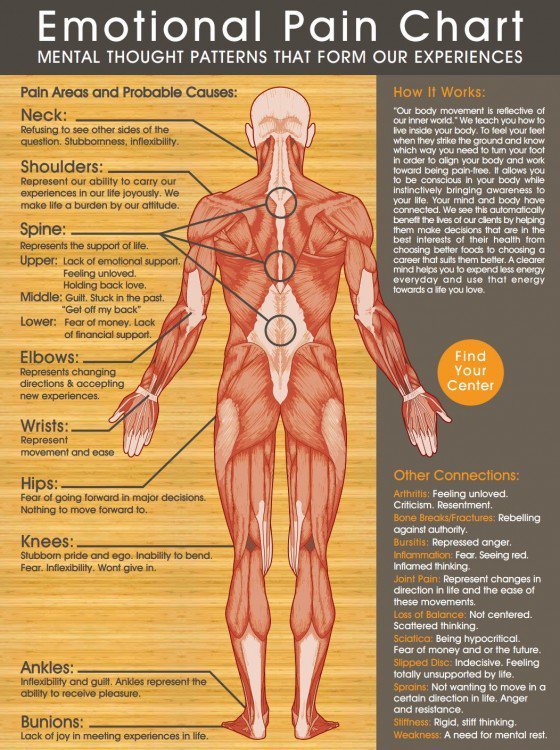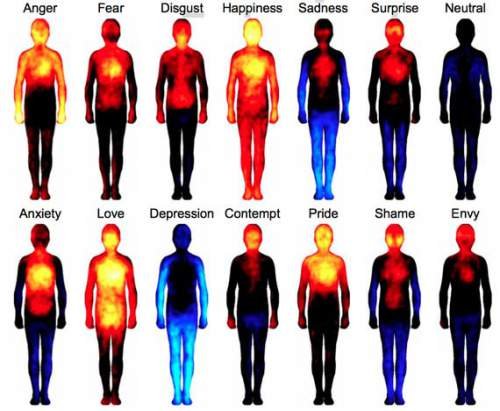
When we think about "Health", we often just think about getting fit and having a healthy body.
But mental health and being in a good emotional place is just as important!
Our emotions have a direct impact on our physical health.
This is something many of us have experienced before, but we never really think too much of it.
Where do you think sayings like "gut feeling" or "butterflies in your stomach" originated from?
Recent meta studies have shown that people who are more content and live a happier life have an increased lifetime of up to 14% - compared to others who were rather sad or unhappy with their life.
When we feel enthusiastic or euphoric, Serotonin and Dopamin (Neurotransmitters) get released in our brain. They affect how we feel our own body - and it works the same way around as well with negative emotions.
These negative emotions can have a direct link to pain in certain parts of your body.
Pain in the hips for example could mean that we have built up a fear towards moving forward, and pain in the ankles is associated with guilt.
Refer to this infographic for further mental problems and their physical areas of pain:

Stress is a killer of mental well-being.
When a pregnant woman goes through a stroke of fate, her body produces a lot of cortisol which changes the immune system of the fetus - changing the baby's immune system and making it more prone to allergies.
The same goes for adults with a stressful lifestyle - it has been proven that small wounds heal slower if the person is in a stressful phase of their life.
If someone is experiencing constant stress or terrible incidents, their body releases more Cortisol and Adrenalin which makes the heart pump faster. This can lead to chronically high blood pressure, which makes the arteries calcify quicker and can lead to strokes!
Depression is another big factor that can influence our physical health.
When someone is depressed, their blood clots faster and inflammations happen early.
It also makes someone feel pain much more intensely, impacts the health of our heart and doubles the risk for a heart disease.
Someone with a light depression already suffers from the same negative effects as passively smoking!
And if someone with depression suffers from a stroke, their chance of regenerating fully is much smaller than someone who is in a good emotional state.
The 'broken heart syndrome' :
In events of extreme sadness, grief or shock, the body releases an excess of stress hormones which can actually lead to a stroke - although nothing is physically wrong with your heart.
Let's look at this interesting analysis of different emotions, and their location in our bodies.

This is the result of a finnish study, which tested over 700 individuals and asked them to mark the body part where they feel a particular emotion.
While almost every emotion triggered a reaction in the face/head area, negative emotions had more effect on the stomach and joyous emotions in the limbs.
So how can you increase your emotional stability and physical health?
- Don't sweat the small stuff.
Stop getting annoyed or angry by those little things in life that go wrong - whether that's the coffee that you spilled or the co-worker that did something wrong. Think about the bigger picture and you will realize that those things don't matter that much.
- Let it out.
When you're feeling angry or sad, it's worse just keeping it to yourself and letting it eat you up. It's better to talk to someone about it - even if they can't help directly.
- Be grateful.
By counting your blessings, you make sure that you're constantly reminded of the good things in life, and are less likely to get lost in the daily stress and negativity.
- Take care of yourself.
Take care of your emotions and that you're not being used or in a negative relationship, and also take care of your body and make sure you eat and drink regularly and healthy, combined with exercise.

- Instagram -

© Sirwinchester
